21 October| 17:00 – Odeon Theatre, Studio Hall
22 October| 20:00 – Odeon Theatre, Studio Hall
[featured_img]
[gallery_stuff]
The play was written by Matei Vișniec in France the beginning of 2009, at the request of the actor and director Mustapha Aouar, who led the company Gare Au Théâtre in Ivry-sur-Seine, to mark 100 years since the birth of Eugène Ionesco. The playwright uses the opportunity to pay homage to his great predecessor, presenting to the audience the famous absent character of the theatre of the Absurd, the Bald Soprano.
[same_day_events_link]
Cast:
The Poet: Matei Rotaru
The Editor-in-chief: Cristian Grosu
Mitzi: Alexandra Tarce
The Prison Governor: Adrian Cucu
Ex-Magistrate: Cătălin Codreanu
Ex-government Minister, Judge: Miron Maxim
The Philosopher: Petre Băcioiu
Vera: Diana Buluga
Vera’s husband: Silvius Iorga
The Bald Soprano: Patricia Brad
Director and Set Designer: Răzvan Mureșan
Assistant Set Designer: Radu Lărgeanu
Costumes: Ilona Lőrincz
Light Design: Jenel Moldovan
Stage Manager: Răzvan Pojonie
Lights: Alexandru Corpodean, Ionuț Maier
Sound Technician: Vlad Negrea
Length: 2 h 20 min (no intermission)
“Lucian Blaga” National Theatre, Cluj-Napoca
English surtitles
Suitable for ages 12 and above
The hero of the play, poet Sergiu Penegaru, tries to preserve his literary values. He writes and translates under communist dictatorship, and enjoys the good fortune of talking to Ionesco’s heroine. They discuss – in liberty, but especially in prison, where the hero ends up – about literature and the charm of the Little Paris, resembling a couple on their first date. The writer got the idea of this character from a recollection of essay writer and literary historian Nicolae Balotă, who recalled that during the 50s, when he was imprisoned in Jilava along Constantin Noica, he laughed heartily when their cell-mate Nicolae Steinhardt recounted Ionescu’s absurd play. Apart from the Bald Soprano, other famous figures haunt the Poet’s cell: Eugen Ionescu himself, the Count of Lautréamont, André Breton, Albert Camus. Two rhinos also appear when the clock strikes five, right on time for 5 o’clock tea.


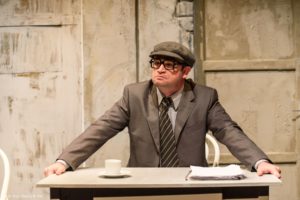
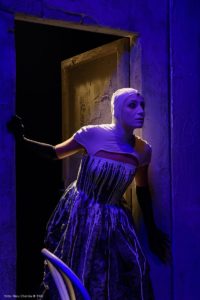



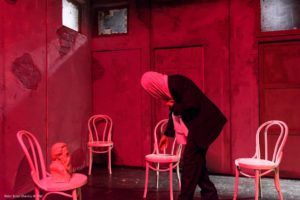
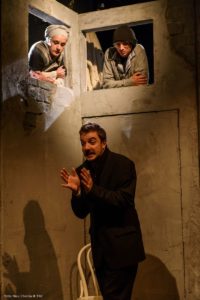

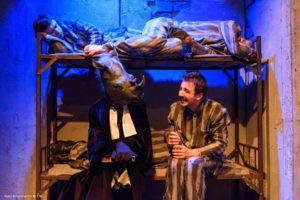
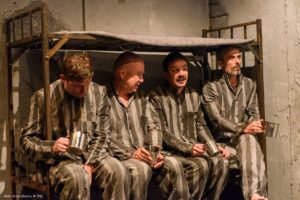
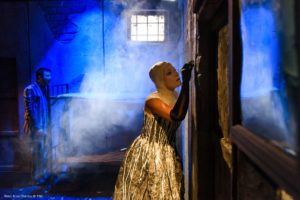

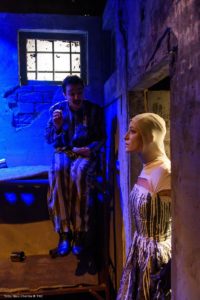


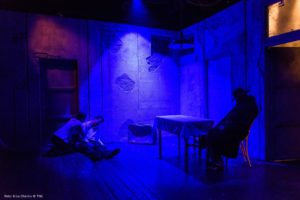
[lxa_breadcrumbs]